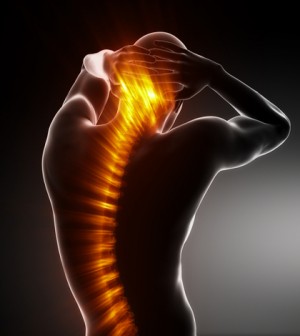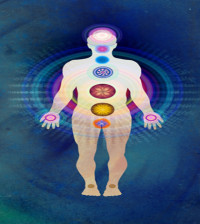- 5 Tips To Finding Peace Within Yourself
- The Do’s and Don’ts of Learning How to Accept Yourself
- How to Find Your Inner Peace and Transform Your Life
- 8 Benefits of Having an Open Mind and How to Get One
- Learn How To Be A Happier Person
- What Is The Meaning Of Life?
- Laws of Abundance – The Riches of Love and Joy
- How to Be Laid Back By Following These 9 Simple Strategies
- The meaning of confucius’ golden rule – 4 practical ways of living it
- 3 methods of unleashing the power of contentment in your life
Chronic Pain Management Techniques To Improve Your Quality Of Life

All of us have experienced pain at some time or other during our lives and what we want most is for it to go away as quickly as possible. Fortunately, most pain does go away in a relatively short period of time – we take something for our headache, our sprained ankle heals up, or we finally get over that case of stomach flu. However, for a significant number of people, pain just does not go away. Although the medical community is still hashing over when acute (regular) pain crosses over into chronic pain, it can probably be considered that any pain that lasts over three months can be considered to be chronic.
Chronic pain management techniques will be important for anyone suffering from persistent, unrelenting pain. It is thought that almost 50 million people in America suffer from chronic pain. In many cases, chronic pain is associated with a verifiable medical condition such as arthritis, colitis, cancer, sciatica, or damaged spinal discs. However, in some cases, there is no real clue to what is causing the pain.
Besides the discomfort itself, chronic pain can also lead to a number of other conditions:
- Insomnia
- Depression
- Immune system damage
- Irritability
- Appetite loss
Your health care provider will be your first stop when you’re looking for chronic pain management techniques, and anti-inflammatory medications or prescription level pain relievers can sometimes help get pain under control. Unfortunately, both these approaches present hazards themselves: anti-inflammatory medications such as cortisone weaken bones, affect eyesight, and can cause diabetes, while some pain medicines can either have serious side effects or be habit forming. You need not abandon your medications when trying to better manage chronic pain, but you might also add some further chronic pain management techniques to help you regain some control over your life.
- Our bodies make natural pain killers, endorphins, and if you are suffering from chronic pain, learning to release these can give you a new outlook on life. Meditation is one of the best ways to accomplish this. The state of total relaxation and peace that you will achieve from meditation will help to release these beneficial neurotransmitters to help alleviate your chronic pain.
- When people begin suffering from continuous pain, they usually restrict their movements. This is one of the worst things that can be done; exercise can help to relieve chronic pain in a number of ways: it can keep joints more flexible, easing arthritis pain; it can release our natural pain killers, endorphins, to suppress discomfort; it will increase blood circulation, bringing more oxygen to all parts of the body.
- Although it is unknown why it works, hypnosis or self-hypnosis has been shown to be a valuable chronic pain management technique. It does cause relaxation and is also thought to release substances that will affect how the nerves perceive pain.
- Biofeedback has also found a place among chronic pain management techniques. Unlike meditation or hypnosis, biofeedback involves the patient being linked to a machine that will measure physical responses such as changes in skin temperature, heartbeat, or respiration. As the person using biofeedback learns to identify and then control various bodily conditions, including pain, it can help to diminish the discomfort.
- East Asians have used acupuncture for centuries for a number of reasons, and one of them is as a chronic pain management technique. According to the theory behind acupuncture, our life force flows in recognizable channels in our bodies, and it is when one of these channels becomes congested or damaged that chronic pain can occur. Acupuncture needles are inserted along these lines to open up blocked channels, stop pain from travelling through the area, or to redirect the life force in a more positive direction.
- Herbal remedies also have a valid place in pain management, and people have often found relief from chronic pain by using feverfew, capsaicin, ginger root, or curcumin. These herbs can act directly on the pain or can be valuable in reducing inflammation, which will be helpful with autoimmune diseases such as arthritis.
There is no doubt that unrelenting pain has a very negative impact on life quality, but it is also possible to use pain management techniques to help alleviate your discomfort. You may also find that a pain support group can assist.








































You must be logged in to post a comment Login